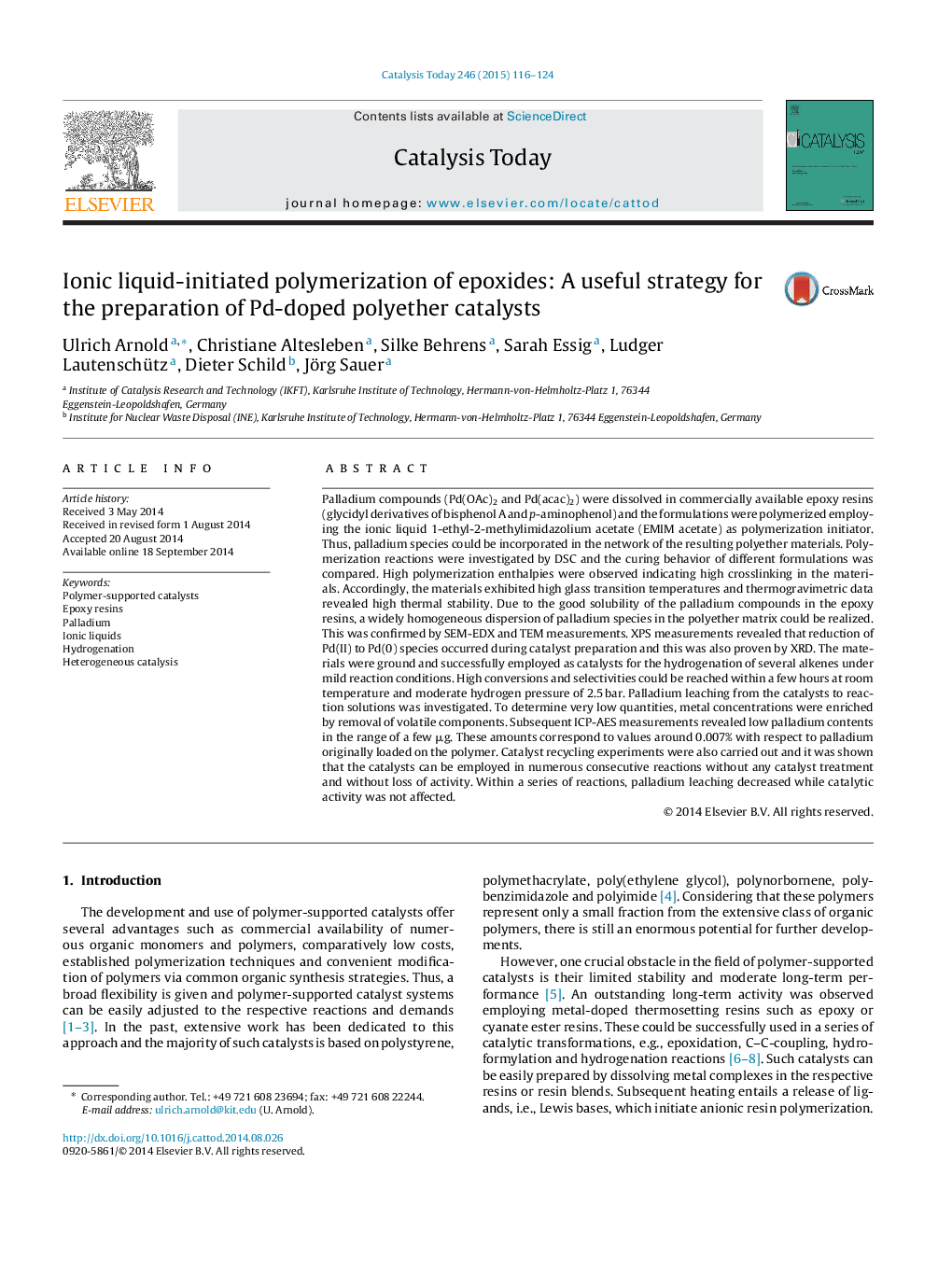| کد مقاله | کد نشریه | سال انتشار | مقاله انگلیسی | نسخه تمام متن |
|---|---|---|---|---|
| 54222 | 47001 | 2015 | 9 صفحه PDF | دانلود رایگان |

• Pd-doped polyether materials were prepared by anionic polymerization of epoxy resins.
• An imidazolium salt was employed as highly efficient polymerization initiator.
• Simple palladium salts like palladium acetate can be used as catalyst precursors.
• The materials are promising hydrogenation catalysts under mild reaction conditions.
• Catalysts can be easily recycled and exhibit very high stability.
Palladium compounds (Pd(OAc)2 and Pd(acac)2) were dissolved in commercially available epoxy resins (glycidyl derivatives of bisphenol A and p-aminophenol) and the formulations were polymerized employing the ionic liquid 1-ethyl-2-methylimidazolium acetate (EMIM acetate) as polymerization initiator. Thus, palladium species could be incorporated in the network of the resulting polyether materials. Polymerization reactions were investigated by DSC and the curing behavior of different formulations was compared. High polymerization enthalpies were observed indicating high crosslinking in the materials. Accordingly, the materials exhibited high glass transition temperatures and thermogravimetric data revealed high thermal stability. Due to the good solubility of the palladium compounds in the epoxy resins, a widely homogeneous dispersion of palladium species in the polyether matrix could be realized. This was confirmed by SEM-EDX and TEM measurements. XPS measurements revealed that reduction of Pd(II) to Pd(0) species occurred during catalyst preparation and this was also proven by XRD. The materials were ground and successfully employed as catalysts for the hydrogenation of several alkenes under mild reaction conditions. High conversions and selectivities could be reached within a few hours at room temperature and moderate hydrogen pressure of 2.5 bar. Palladium leaching from the catalysts to reaction solutions was investigated. To determine very low quantities, metal concentrations were enriched by removal of volatile components. Subsequent ICP-AES measurements revealed low palladium contents in the range of a few μg. These amounts correspond to values around 0.007% with respect to palladium originally loaded on the polymer. Catalyst recycling experiments were also carried out and it was shown that the catalysts can be employed in numerous consecutive reactions without any catalyst treatment and without loss of activity. Within a series of reactions, palladium leaching decreased while catalytic activity was not affected.
Figure optionsDownload high-quality image (141 K)Download as PowerPoint slide
Journal: Catalysis Today - Volume 246, 15 May 2015, Pages 116–124